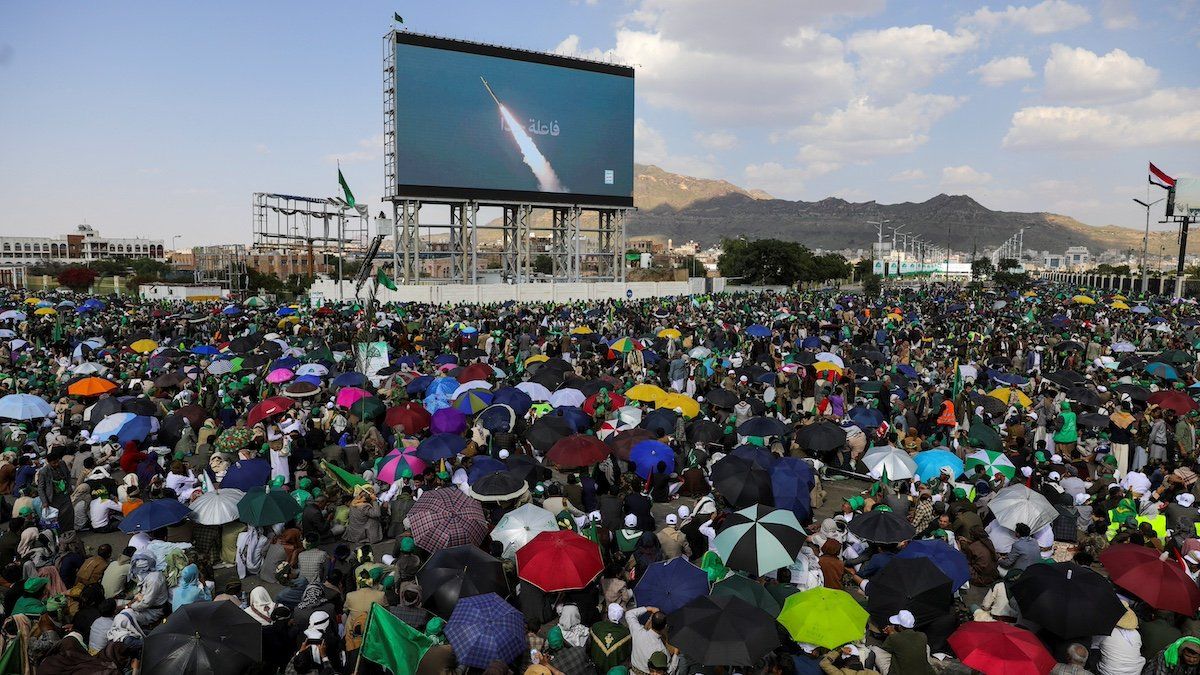Netanyahu vows retaliation against Houthis, Hezbollah threatens war
September 15, 2024
People, mainly Houthi supporters, rally to mark the anniversary of the birth of the Prophet Mohammad and to show solidarity with Palestinians in the Gaza Strip, in Sanaa, Yemen, September 15, 2024.
REUTERS/Khaled Abdullah
Israeli Prime Minister Benjamin Netanyahu on Sunday vowed that the Houthis would pay a “heavy price” after a missile fired from Yemen struck central Israel. The Houthis credited theability of new hypersonic ballistic missiles to evade interception by Israel’s Iron Dome defense system and warned of more strikes ahead of the anniversary of Hamas’ Oct. 7 attacks “in solidarity with the Palestinians.”
Hamas welcomed the strike, which represents an escalation from Houthi aggression against Israeli-linked ships in the Red Sea and the Gulf of Aden since November. The group had previously also fired missiles at the Israeli port city ofEilat and struck Tel Aviv with a drone in July, killing one man and wounding four others.
Also this weekend,Hezbollah’s deputy leader, Naim Qassem, warned Israel that a full-scale war on Lebanon would result in “large losses on both sides” and further displacement of Israelis. Qassem made the remarks after Israel’s Channel 13 reported that Netanyahu was “on the verge” of launching a “broad and strong operation” on the country’s northern border with Lebanon.The Israeli military reported Saturday that it struck Hezbollah “weapons storage facilities” in Lebanon after “a barrage of 55 projectiles” were fired from Lebanese to Israeli territory earlier that morning. We’re watching for signs of further escalation.